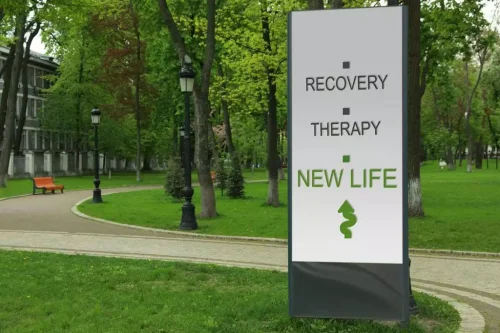
This can encourage them to reflect on their actions and consider the need for help. Offering a solution shows that you aren’t just judging or attacking; you are trying to help. They might not be ready to accept help just yet, but you’re at least planting a seed and showing that there is a way forward. There are several signs of denial to look out for in your loved ones or in yourself.
Symptoms of Denial & Stages of Recovery
Some individuals may genuinely lack insight into the severity of their addictive behaviors, while others may intentionally downplay or distort their experiences. Clinicians must navigate this spectrum of self-awareness, recognizing that tailored approaches are required to address the unique needs of each individual. Minimization and rationalization represent pivotal denial mechanisms employed by individuals grappling with addiction, serving to distort their perceptions of the severity and consequences of their addictive behaviors. Even if someone contemplates the idea that their substance use could be problematic, they may still find it hard to confront the severity of their addiction within themselves. The ability to recognize harmful behaviors and the negative consequences of drug use is an important aspect of a person’s recovery. However, remaining in a state of denial prevents many people from understanding the toll that their harmful behavior takes on themselves and those they love.
What is Rehab and How Can it Help You?
It creates a barrier to seeking help, as individuals may believe they have control over their substance use or that their addiction is not as serious as it truly is. In rehab, people undergo alcohol detox, learn about the dangers of alcoholism and find new ways to avoid drinking. Many people with the disorder are reluctant to seek rehab, partly because alcohol is a central part of their life. And they know that rehab could compromise their relationship with alcohol. For many who struggle with alcohol use disorder, it’s much easier to pretend that the problem doesn’t exist.
- There are unique professionals that conduct interventions, and those individuals can be extremely helpful in these processes.
- According to the psychodynamic perspective, denial operates as a defense mechanism employed by individuals with substance disorders to avoid consciously confronting threatening emotions.
- CBT focuses on helping individuals identify and change negative thought patterns and behaviors that contribute to their denial.
- One striking finding involved the 4% of AUD probands overall who admitted to tolerance in the prior five years compared to 57% who endorsed tolerance in AUD offspring.
- This can encourage them to reflect on their actions and consider the need for help.
Long-Term Effects of Alcohol on Your Health

This means that individuals with alcohol use disorder might struggle to fully comprehend and confront the seriousness of their addiction. If you think someone you know is in denial about their drug or alcohol use, try to be understanding and supportive. Sometimes denial can be helpful for a little while when dealing with a stressful or traumatic situation. But staying in denial is harmful because it prevents you from seeking help or addressing a situation. In addition to supporting your own mental health, this serves as a role model to your loved one. Even if you are aware that your drinking has become a problem, it’s common to worry about what others might think.
- Alcohol use disorder includes a level of drinking that’s sometimes called alcoholism.
- Her own lyrics told us “I don’t ever want to drink again.” But she did drink again.
- While we wait for definitive trials leading to FDA medication approvals in humans, promising studies using neuromodulation of the brain as well as treatment with ketamine and other psychedelics are encouraging.
- However, even a mild disorder can escalate and lead to serious problems, so early treatment is important.
- CBT can be particularly effective in helping individuals overcome denial by providing them with insight into their addictive behaviors and offering practical strategies for change.
- Understanding the reasons behind alcoholism denial can shed light on why individuals refuse to acknowledge their drinking problem.
Further research on neuromodulation (TMS), ketamine, psychedelics, and GLP-1 receptor agonists may increase patient and physician interest in AUD treatment. New research has found that psilocybin reduces alcohol consumption in rats by altering the alcoholism and denial left nucleus accumbens in the brain. While we wait for definitive trials leading to FDA medication approvals in humans, promising studies using neuromodulation of the brain as well as treatment with ketamine and other psychedelics are encouraging.
- This can help the person with AUD feel more at ease and might help them accept that they need treatment for their alcohol use.
- Addressing denial within the context of dual diagnoses requires integrated treatment approaches that simultaneously target both addiction and mental health issues.
- You may even find that if you continue to press the issue, your loved one gets angry.
- That’s because they think that they haven’t hit “rock bottom” or experienced severe repercussions yet.
- Therapists work collaboratively with family members to identify enabling behaviors, promote open communication, and establish healthy boundaries.
- Successful AA members usually become sponsors once they have been senior members in recovery for at least a year.
How to approach your loved one
Genetic, psychological, social and environmental factors can impact how drinking alcohol affects your body and behavior. Theories suggest that for certain people drinking has a different and stronger impact that can lead to alcohol use disorder. Because denial is common, you may feel like you don’t have a problem with drinking. You might not recognize how much you drink or how many problems in your life are related to alcohol use.
Despite the hardships of this condition, there are ways to help people with alcoholic denial and alcohol abuse issues. Overcoming denial is crucial for individuals to begin their journey towards recovery and regain control of their lives. Strategies to address denial include education and https://ecosoberhouse.com/ awareness, interventions and support systems, therapy and counseling, and encouraging self-reflection and accountability. By combining these strategies, individuals can gain a deeper understanding of their addiction, confront their denial, and take the necessary steps towards recovery.
